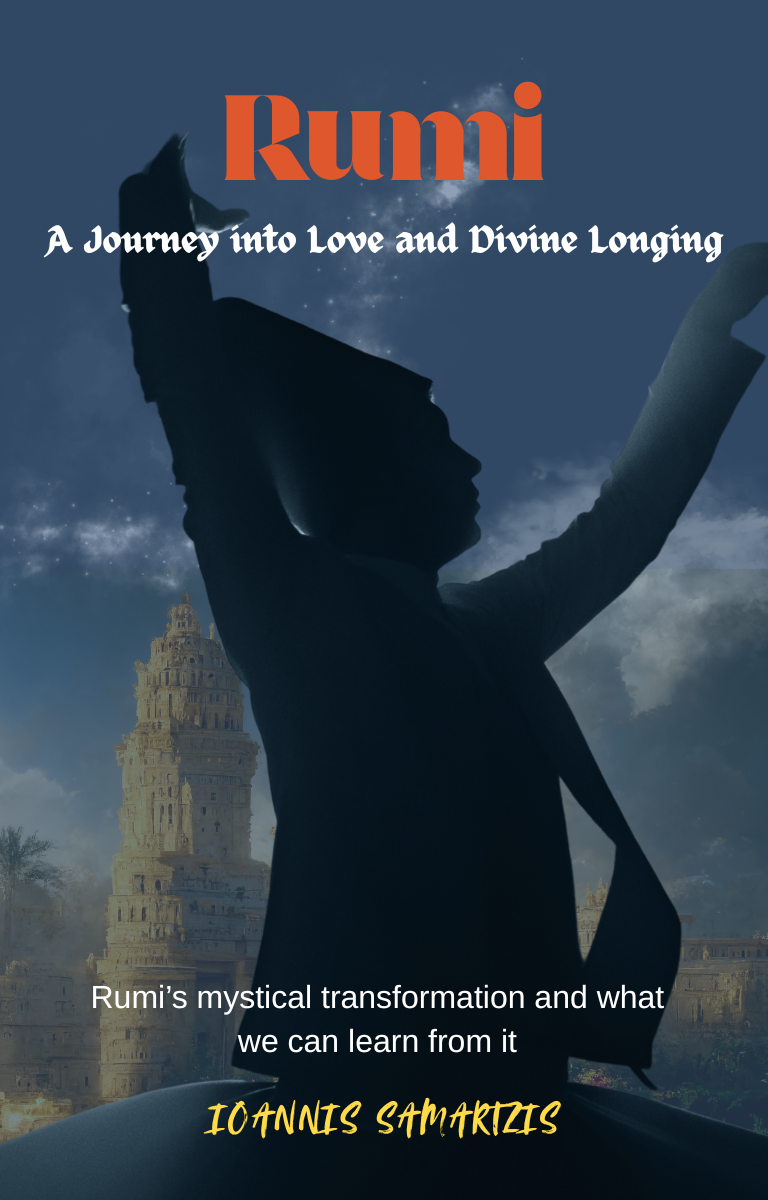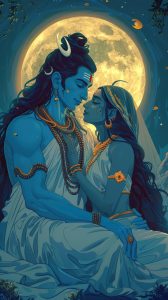Rumi – Healing and Divine Love
There is a love that doesn’t arrive gently. It erupts like lightning in a clear sky and sets fire to everything you thought was stable. This is the love that Rumi speaks of—not as a topic of poetry but as its source, its fire, its breath. He never wrote of love as a decoration of life. To him, love was life itself. He knew that healing and divine love were one and the same
He said, “Through love, bitter things seem sweet. Through love, bits of copper are turned to gold.” And it was through love—fierce, divine, burning—that his copper soul turned to gold. But before the poems, there was the fire. And before the fire, there was Shams.
History
In the year 1244, in the city of Konya, a wandering dervish appeared. No wealth, no credentials—just a presence so intense it broke apart the world of a revered scholar. Shams of Tabriz. He was not there to teach Rumi in the traditional sense. He was there to burn him.
Their first conversation is said to have begun with a single blasphemous question: Who is greater? The Prophet Muhammad or Bayazid Bastami? But it wasn’t the answer that mattered. It was the impact. That one question tore a hole in intellectual certainty and opened a secret doorway in Rumi’s heart.
What happened between them was not a friendship in any conventional sense. It was a sacred collision. Rumi once wrote, “I am only the house of your beloved, not the beloved herself.” True love is for the treasure, not for the coffer that contains it. In Shams, he didn’t see a man—he saw the light behind the man, the divine shining through flesh.
He said, “The moment I first heard love, I gave up my soul, my heart, and my eyes.” Love didn’t awaken him. It unraveled him. But Rumi never confined love to a person. Shams was a mirror, and what Rumi saw in that mirror was the face of the Beloved—the infinite presence he had only read about in books until then.

Shams was the book come to life. And when he vanished—some say murdered, some say ascended—Rumi did not mourn a man, although at first he did grieve heavily. He transformed grief into gold. “Don’t grieve,” he wrote. “Anything you lose comes around in another form.” He realized that the true Beloved had never left—that what he had seen in Shams was simply a reflection of the divine within himself.
Poetry
This is what makes Rumi’s poetry so enduring. He speaks of love not as possession, not as desire, but as annihilation. “This is love: to fly toward a secret sky, to cause a hundred veils to fall each moment. First, to let go of life. Finally, to take a step without feet.”
For Rumi, to love is to burn. “Die before you die,” he told his students, “and you will live forever.” And this is not metaphor. Rumi meant it quite literally—that the ego must dissolve, the false self must be pierced so the soul can reunite with its source.
The way Rumi speaks of longing is not sorrowful. It is sacred. It is a holy ache that pulls us toward the invisible. He wrote, “The wound is the place where the light enters you.” And this wound, this longing, is the evidence of love’s presence—even when love is nowhere to be seen.
This is the paradox of Rumi’s poetry—that even in absence, there is union. Even in loss, there is arrival. “Lovers don’t finally meet somewhere,” he said. “They’re in each other all along.”
He speaks often in images: the moth drawn to the flame, the nightingale crying for the rose, the ocean calling back the drop. These are not metaphors for lovers in the world—they are metaphors for the soul’s journey toward God.
To Rumi, every form of human love is a mirror of the divine. Romantic love, friendship, grief, ecstasy—all of it points to the same source. “I searched for God and found only myself,” he said. “I searched for myself and found only God.”
Teachings
Even the most ordinary experiences, in Rumi’s vision, become cosmic signals. The absence of a friend, the glance of a stranger, the longing that stirs in a quiet room—these are all messages from the Beloved. He was said to have written, “What you seek is seeking you.” What some scholars since have declared, is that the correct quote is, “What you seek is yourself.” The very fact that we long for love is proof that love is already near.
He taught that our task is not to chase it, but to clear the path for it. “Your task is not to seek for love, but merely to seek and find all the barriers within yourself that you have built against it.” And what are those barriers? Ego, fear, shame, pride—the false self that clings to identity, resists change, and trembles at the thought of being undone. The frightened self that must control rather than experience, judge rather than accept.
How to be in love
But Rumi does not ask us to kill the self violently. He asks us to melt. “Be like melting snow,” he said. “Wash yourself of yourself.” In love, there is no room for control, no room for certainty. “The one who truly loves becomes dust—and in that dust, becomes eternal.”
Perhaps the most powerful symbol Rumi offers is the reed flute. At the opening of his masterwork, the Masnavi, he writes:
“Listen to the reed and the tale it tells, how it sings of separation.”
The reed has been cut from the reed bed—like the soul has been cut from the divine source. And it wails with a longing that never ends. But that wail, that ache, is beautiful. It is music. It is the beginning of the spiritual journey.
We cry because we remember. We long because we once belonged. And so, Rumi invites us not to escape our longing, but to dive into it—to let it baptize us in mystery. He writes, “You were born with wings. Why prefer to crawl through life?”
The Voice of a Lover
His voice is not the voice of a guru with answers. It is the voice of a lover still burning, still waiting, still dancing with the unknown. He says, “Be like a tree and let the dead leaves drop.” Let go of what no longer serves. Let go of the illusion that love is something outside of you—that the Beloved is somewhere distant.

“The Beloved is inside you,” Rumi wrote. “And also, inside me.” This is the revolution of Rumi’s love. It doesn’t point outward—it points inward. And the more inward we go, the more the world becomes holy.
Rumi teaches that love is not the goal. It is the return. We are not traveling toward the Beloved. We are remembering the Beloved. Every ache is a knock on the door. Every moment of beauty is the Beloved whispering through form.
“I am not this hair,” Rumi said. “I am not this skin. I am the soul that lives within.” For Rumi, healing and divine love are one and the same.
So, what does Rumi ask of us? Not to understand love, but to dissolve into it. Not to read about the path, but to walk it barefoot, heart-first. He asks us to fall apart in the presence of the Beloved—to be taken, to be remade.
“Close your eyes,” he says. “Fall in love. Stay there.”
What next?
And that’s where we’ll stay for now—at the edge of that fire. Not to admire it, but to enter it. Because as Rumi reminds us, love is not a story we hear. It is the truth we remember when the self is gone—and only the soul remains.
Rumi’s belief that Healing and Divine Love are one and the same is found in many of his poems. If you are longing turn to Rumi. Don’t let the pain frighten you, or to put your barriers back up. Embrace the pain. Shed the tears. Choose to stay. Running does not stop anything – it simply puts it off for another day – and until that day love is lost.
*Book a free session and receive the eBook seen on the image.*



